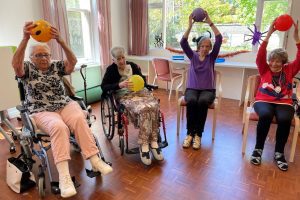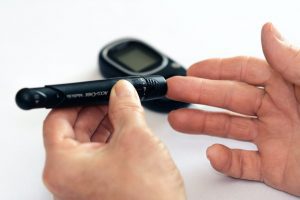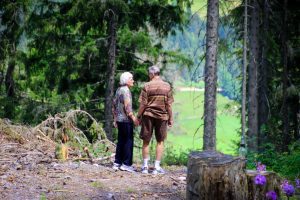How To Prevent Elderly Slips, Trips & Falls

Falls can be fairly common, however, they are more dangerous than you might think; particularly for elderly people. Recent figures show that 15 people die per day from falling. In 2017, statistics showed that 5,580 people throughout England and Wales had ‘accidental fall’ cited as an underlying cause of death on their certificate. Of that number, 79% were aged 75 and older.
It is essential that your loved one is as safe as possible from falling. Whilst there is no way to fully prevent the risk of falling, particularly if your loved one has a condition causing dizziness or unsteady footing, there are steps you can take to reduce the likelihood of a fall, slip or trip occurring.
Approximately 1 in 3 elderly people over the age of 65 will experience at least one fall per year. Falls are not always fatal, in fact, very few falls result in serious injury. However, they could result in broken bones that prevent your loved one from fully caring for themselves.
In addition to the physical risks associated with falling, elderly people who experience a fall often have their confidence knocked; harming their well-being.
Elderly Fall Prevention Tips
Below are a few tips on how to reduce fall risks.
1. Ensure your hallways are clear at all times
Cluttered rooms lead to increased fall risks. Ensure that all hallways or pathways are clear at all times.
Analyse the residence and try to identify anything that could cause someone to fall if they were rushing from one room to another. Are there stray cables that might catch your feet? Are there any misplaced shoes that should be safely stored away?
If you notice your loved one is struggling to maintain a tidy home, it may be worth considering investing in elderly home care to ensure their home is as safe as possible.
2. Ensure good lighting at all times
If the lighting in your loved one’s home is dim, this could increase the chances of a fall. Energy-saving light bulbs are great for the environment, but it is important to ensure that these are not so dim that your loved one struggles to see and falls.
Check that the lighting throughout your loved one’s home is high quality, particularly on the stairways. Even if your loved one’s vision is 20/20, there will still be occasions where good lighting is useful; such as during the night or throughout darker mornings.
3. Invest in elderly fall prevention devices
Falls are more likely to occur if there are wet floors, making the bathroom a particularly dangerous place. There are a variety of elderly fall prevention devices that you can invest in to reduce fall risk. These include:
- Non-slip mats in the bathroom
- Shower grab rails
- Shower seats
Similarly, ensure that the stairways have a high-quality handrail. If it is wobbly or has seen better days, it is best to replace it to ensure your loved one’s safety.
If your loved one is struggling to move up and down the stairs or you are concerned about their ability to bathe themselves, why not speak to one of our elderly care specialists to see if we can offer any assistance?
4. Ensure any spillages are dealt with quickly
Some types of flooring can become more slippery once a spill has occurred. Therefore, all spillages must be cleaned up as quickly as possible before it is absorbed; preventing the likelihood of an accidental slip.
Following these simple tips will reduce the chances of a fall taking place. If you are concerned about your loved one’s safety around the home, get in touch with a member of our team to discuss how we can offer additional care and support. Alternatively you can use the links below to learn more about the support we offer across the country.
Or view all the locations we operate in here.




